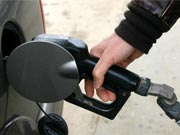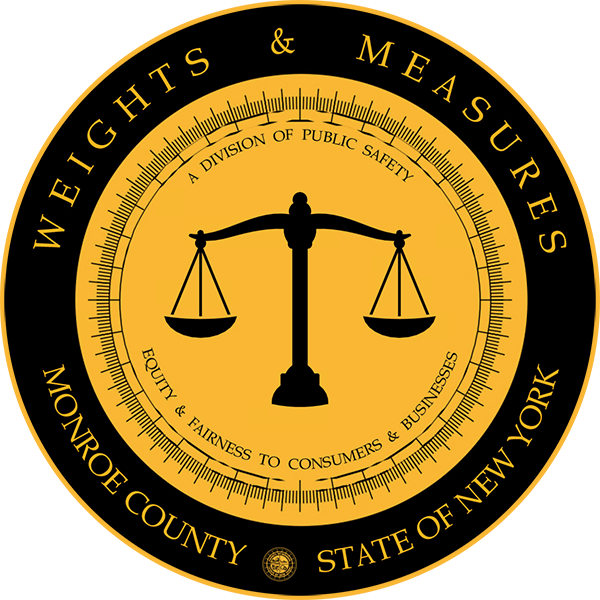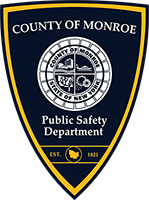Monroe County Fleet Center
145 Paul Road Bldg. #2
Rochester, New York 14624
Jeffrey Berl, Director
[email protected]
Phone: (585) 753-7933
Fax: (585) 753-7485
[email protected]
On This Page

Applying Collective Standards of Equity and Fairness to Consumers and Businesses
The Department of Weights and Measures assures equity in trade by administering and enforcing the New York State Agriculture and Market Laws which deal with the accuracy and proper usage of all commercial weighing and measuring devices.
The Department is responsible for the inspection of commodities as well as the testing and inspection of weighing and measuring devices in supermarkets, industrial establishments, gas stations, hardware stores, pharmacies, concrete and asphalt plants, taxi meters, salvage yards, fabric stores, jewelry stores, farm markets, petroleum bulk plants and fuel oil trucks.
ALL commerical use devices MUST be LEGAL for trade! Please click on listing of approved devices to determine if it is legal for trade.
View Fee Schedule For Inspections (PDF)
Price Accuracy
Items sold at retail stores must be accurately priced and scan correctly at checkout. You should be charged the lowest advertised price. Goods found in clothing, hardware, food, drug, sporting goods or other retailers are included in these regulations. Additionally, sellers must post store’s refund policy in case of an overcharge.
Monroe County weights and measures officials inspect scanners to make sure you are charged the correct price. If the scanners are inaccurate, consumers and businesses can both lose money.
What You Can Do
- Watch as the price of the item shows on the checkout register.
- Ask the clerk to check the price if you think the scanned price is incorrect.
- If the scanned price does not agree with the posted price, ask the store manager to correct it.
- Save your receipt in case you have questions or a problem later on.
You can file a complaint about businesses that do not post prices or who overcharge.
Please contact us at 585-753-7933 or e-mail: [email protected] for help. Please provide the following information.
- Store name and address
- Date of occurrence
- Item(s) purchased, including brand name, size, color, or any other details that could help the inspector in finding the exact item
- Lowest posted price(s) and charged price(s)
- Include a telephone number or an e-mail address to allow us to contact you with the results. Your information will be kept confidential.
Inspection of Weighing & Measuring Devices
The monitoring of commercial business enterprise standards requires frequent inspection and testing of all weighing and measuring devices within the County. All standards used in county testing follow national standards (NIST). Inaccurate measuring devices and meters are reported and ordered for repair by the inspectors. Civil penalties are imposed for non-fraudulent violations while fraudulent cases are referred to the County Attorney for prosecution.
If you have a commercial-use measuring device (e.g. scale, gasoline pump, taximeter, fuel truck meter) that is used to determine the price of a commodity or service rate, you are REQUIRED to contact this department at 585-753-7933 for testing and certification.
The Department also participates in the New York State Petroleum Quality Program which assures the quality of gasoline and other motor fuels by sampling at retail stations.
Pay Only for the Product, Not the Packaging:
Video Checking the Net Contents of Packaged Goods
When you buy jelly in a glass jar, you should pay only for the weight of the jelly. If you buy potato salad at the deli counter, you should pay only for the salad, not for the weight of the container.
The weight of the packaging materials is referred to as tare weight. In many stores, the electronic of computerized scales used at the check-out counter are set to automatically deduct the tare weight on commodities packaged in the store. On other scales, the sales clerk must manually deduct the tare weight by using the tare function of the scale.
In direct sales, scales must be placed so you can see the scale indicator. If you are not sure if the weight of the packaging has been deducted, ask the person doing the weighing if they took ’tare’ and ask them to weight the package again and look at the indicator. You should see a weight with a minus sign in front of it (i.e., -.02). The numbers will vary depending on the type of packaging, but the minus sign indicates that the tare was taken.
Weights and Measures officials also inspect and weigh prepackaged commodities in the stores to insure that the declared quantity on the package label does not include the tare weight.
Taking tare is not an option in New York State. Anyone selling a commodity is required under the law to take tare on packages. Anyone found not taking tare on packages, can be ordered to take that product off sale permanently or until the packages have been corrected. They are also subject to the penalties if they declare a false quantity on the package.
The following sections of New York State Agriculture and Markets Law, Article 16 are used by Weights and Measures officials to ensure that the person(s) packaging a commodity take tare before determining the net weight of a commodity.
Section 186.2. For the purpose of purchase, sale or service, no person shall use a false weight, measure, device or system for determining the quantity of any commodity. If the seller furnishes the weight or measure of the commodity sold, he shall not sell or deliver less of any such commodity than the quantity represented to be sold; if the buyer furnishes the weight or measure of the commodity purchased, he shall not receive or accept more of any such commodity than the quantity represented to be purchased.
Section 189. All commodities, the method of sale which is not prescribed by this chapter, shall be sold, or offered or exposed for sale by net weight, standard measure or numerical count pursuant to the regulations promulgated by the commissioner. Such regulations may prescribe the method of sale for specific commodities or categories of commodities and may authorize a method of sale other than those prescribed in this section whenever the commissioner finds that such other method is appropriate and consistent with the interests of consumers.
The cost of packaging commodities has already been taken into consideration by the seller when determining the unit price. If the law did not require that the tare be taken on packaged commodities, you would actually pay twice for the packaging materials.
If you suspect that either of the above sections of the law are not being adhered to in regards to an establishment or a particular commodity, call 585-753-7933 to investigate.
Getting What You Pay For:
It's hard to be a smart consumer today. You think about the products you buy and the amount you can spend. Can I afford this? Is it the best buy? Am I getting my money's worth? Almost everything we buy is sold by weight, volume, length, count or measure. Think of examples—a dozen eggs, a gallon of milk, a liter of wine, a yard of cloth, a pound of hamburger, a cord of firewood. Without standard measurements, it would be difficult to do even simple things like use cookbooks or buy carpeting, laundry detergent and fabric.
Keeping the Market In Balance
You don't carry a scale or measuring tape with you to check the weight or measure of everything you buy. How do you know you're getting what you pay for?
For hundreds of years, your local Weights and Measures officials have been working behind the scenes to protect consumers, businesses and manufacturers from unfair practices. Weights and Measures officials work in agriculture departments, consumer protection offices and other state and local government agencies. These men and women use highly accurate equipment to inspect scales, meters and packaged products at supermarkets. They also inspect weighing and measuring equipment and packages at warehouses, packing plants, feed mills, shipping companies, lumber yards and gasoline stations. They act as a third party to help maintain fairness and keep the marketplace in balance.
Each state has a metrology laboratory which has set standard weights and measures. These are used to check the accuracy of the equipment used by weights and measures officials and industry.
(Provided by NYS Weights and Measures Associations and the National Conference on Weights and Measures.)
Buying Heating Fuel:
Home heating fuel and propane are sold by volume or weight. When these products are delivered to your home, the seller must give you a “delivery ticket” showing the name and address of the buyer and seller, the delivery date, the amount and type of fuel delivered. The unit price of the fuel should also be on the delivery ticket unless you have a special arrangement with the seller. The amount of product delivered must be 'metered' onto the ticket—it cannot be written in by hand.
If you have a problem with the delivery of home heating fuel or propane, contact this office at 585 753-7933.
(Provided by NYS Weights and Measures Associations and the National Conference on Weights and Measures.)
Buying Firewood
Some people heat their homes with firewood, which is sold by a measurement called a “cord.”
A cord is 128 cubic feet of firewood. To be sure you have a cord, you should stack and measure the wood. If the width times the height times the length (all in feel) equals 128 cubic feet, you have a cord of firewood.
The seller may not use terms such as “truckload,” “rack” or “pile” in any advertisement or on the receipt.
The seller MUST issue a receipt which shows the seller's name, address and phone number, and the price, quantity and kind of wood purchases.
What You Should Do
- You or someone you trust should be present at the time the firewood is delivered.
- Write down the license number of the delivery vehicle and get the name of the driver.
- Stack the wood as soon after delivery as possible.
- Measure the wood before re-cutting or using any of it.
- Take a picture of the stack (s) of wood if you think there is less than what you paid for.
- If you feel you have a problem, contact the seller before you burn any wood.
If you have a problem with the delivery of firewood and you cannot resolve it, contact this office at 585 753-7933.
(Provided by NYS Weights and Measures Associations and the National Conference on Weights and Measures.)
 Buying Gasoline:
Buying Gasoline:
Good measurement is important when you buy gasoline and motor fuel. These fuels are sold by volume in gallons or liters. The price you pay for gasoline will depend upon:
- The octane level, which may affect the performance of your car;
- The amount you buy; and
- Any discounts offered.
A computer in the gasoline pump calculates what you owe based on the amount and the unit price of the gasoline. When comparing prices, be sure to compare gasoline with the same octane rating. Usually, the higher the octane rating, the higher the price. Also check to be sure you are comparing the same unit of measurement. Is the price per gallon or per liter?
Weights and measures officials routinely check gasoline pumps for accuracy. Pumps found to be out of tolerance are sealed from use and ordered repaired and must be re-tested before they can be put back in use. New pump installations must be inspected and tested prior to being put into service. In many areas, they also check gasoline storage tanks to be sure that stations are selling the octane level advertised. If violations are found, the seller can be fined and the product can be removed.
Gasoline stations offering their mid-grade or high-grade product at the low-grade price on a certain day of the week must change the unit price of the product in the computer in the gasoline pump and calcuate accordingly.
What You Can Do
Be sure the attendant or you are using the correct pump.
- The octane rating and the price per gallon or liter must be clearly marked on each pump.
- Be sure the pump is set to zero before any gasoline is pumped.
- Check the price by multiplying the number of gallons or liters by the unit price. Be sure this shows as the total due.
- Figure the cash discount, if any. Check that you are charged the right amount.
- Check your receipt to be sure the amount billed is the amount on the pump.
If you have a problem or question that you cannot resolve with the gas station, contact the Department of Weights Measures at 585 753-7933.
(Provided by NYS Weights and Measures Associations and the National Conference on Weights and Measures.)
Weights and Measures Consumer Tips At the Gas Pump
Do not overfill your gas tank!
When the nozzle shuts off on its own, Stop! Gas tanks are designed to allow room for the vapors produced by the product. Routinely over-filling can eventually cause your tank to leak. Your 2 gal, 5 gal, etc. gas can will always hold more than its stated capacity. It is also designed to allow for the product’s vapors.
Plastic cans which are consistently filled to the top, will eventually stretch due to the product expansion. Metal cans will eventually leak, for the same reason.
If the unit price of gasoline is $3.799 and you by exactly one (1) gallon, you will be charged $3.80 as there is no way to pay 9/1000 of a cent.
Be sure the product has stopped flowing before removing the nozzle.
Do Not smoke and pump!
Do Not use Cell phones!
Be aware of static
Tips For Staying Safe When Paying With Credit Cards or Using ATMs - Beware of Skimming Devices!
Skimming devices have been found on some ATMs, gas pumps and other machines where a credit/debit card can be used.
These devices read credit/debit card information. Some skimming dvices can be used solely by walking by you and scanning your purse/pocket for credit/debit card information.
Here are some tipes to keep your credit/debit/personal information safe:
- Use caution when using your credit/debit card
- Keep your credi/tdebit card in a RFID protecive sleeve when not is use
- Pay inside. Pay with a credit card or use your debit card as a credit card
- Protect your PIN from view and against hidden cameras
- Keep your card in sight when paying. Be aware that workers can use hand-held skimmers to skim your information before swiping it for payment services.
When pumpimp gas, use pumps closets to the building to lessen chances of pumps being accessed illegally.
Some gas stations are using tamper resistant security tape to help protect the pumps from skimming devices. Look for this tape by the credit card slot or the upper part of the pump. If the seal is cut, broken or the word "VOID" is displayed, it is an indication that someone has entered the inside of the pump to possibly install a skimming device. DO NOT USE THIS PUMP. Alert the station's management.
There are also skimming dvices that fit over credit card readers. Grab hold of the credit card slot and pull. If the unit comes loose or separates fromt eh pump or ATM, DO NOT USE this machine. Contact the business manager and police.
Monitor your bank statements for suspect transactions.
Be aware of your surroundings at all times.
Call 911 to report suspicious activity at gas pumps.















